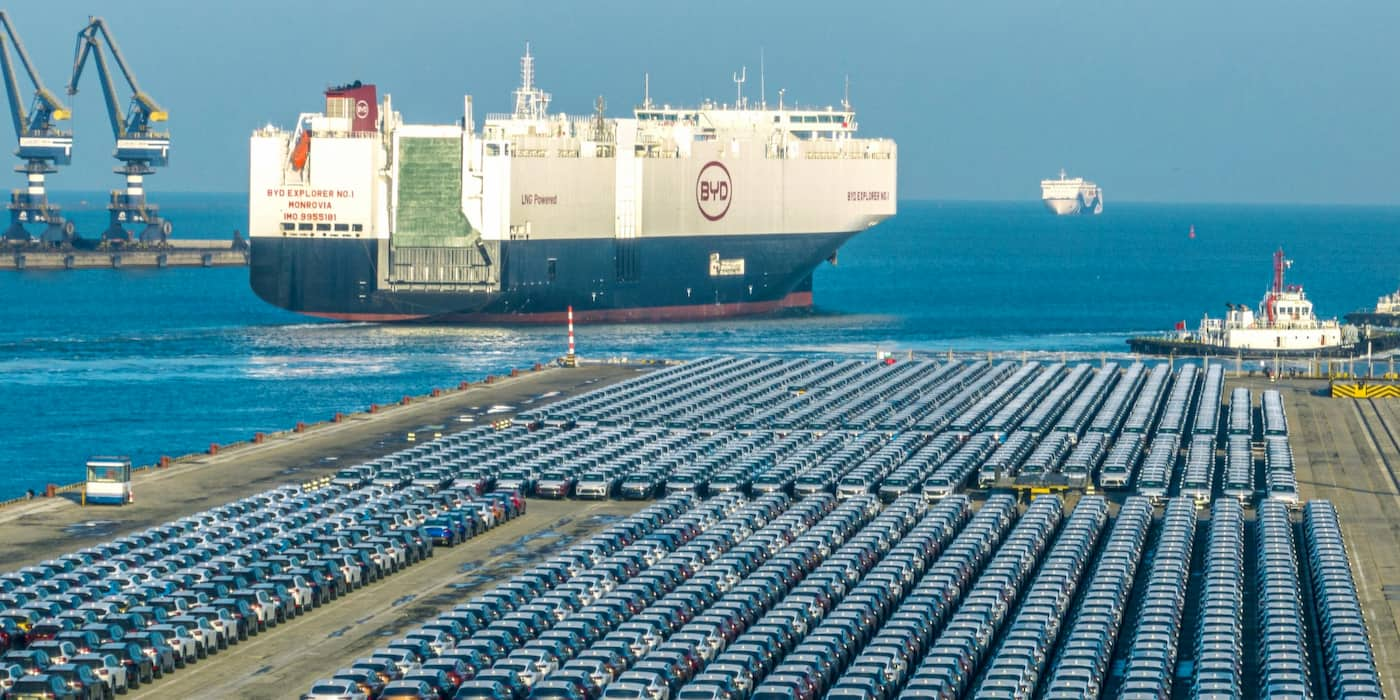
As the European Union slaps more restrictive tariffs on EVs pouring in from China, Chinese automakers have found a workaround: they’ll just make and export hybrids instead, since hybrids of all varieties are bizarrely exempt from the tariff scheme.
Reuters reports that automakers in China have now shifted gears and plan to export hybrid vehicles rather than EVs to Europe, all while planning more hybrid models for coming years.
The European Union’s latest EV tariffs of up to 45.3% on Chinese EVs are designed to protect its struggling auto industry from Chinese competition, with Chinese automakers flooding the bloc with cheap imports. But the caveat is that hybrids are excluded from increased tariffs, giving brands such as BYD a loophole to keep growing in the region.
As for EVs, the duties differ depending on the automaker, with 17% for BYD, 18.8% for Geely, and 35.3% for state-owned SAIC, in addition to the EU’s 10% vehicle import duty. Other EV manufacturers in China, including BMW and Volkswagen, are subject to a 20.7% duty, while Tesla is subject to a duty of 7.8%. But of course, exporting hybrids sidesteps this whole issue.
“The increase is driven by Chinese OEMs shifting toward plug-in hybrid vehicles as a way to sidestep the new EU tariffs on battery-powered vehicles imports from China,” Murtuza Ali, an analyst at Counterpoint Research, told Reuters. He said that China’s hybrid exports to the region will likely grow 20% this year alone, and even more next year.
The European Commission says that the tariffs are needed to counter what it says are unfair subsidies – massive government aid in the form of grants, financing, and cheap access to land and raw materials that enables Chinese automakers to undercut rivals in the EU on price, both consuming a large chunk of the market share and putting European jobs at risk. Not to mention that China’s spare production capacity of 3 million EVs per year is twice the size of the EU market. Since the US and Canada apply 100% tariffs on EVs coming from China, Europe has been the most obvious choice for Chinese expansion.
In any case, hybrids of all flavors seem to be gaining popularity in Europe as the US, with hybrid exports to Europe more than tripling to 65,800 units from July to October compared to the same period a year earlier, in data from the China Passenger Car Association cited by Reuters. In the third quarter, hybrids (including PHEVs) accounted for 18% of China’s total vehicle sales to Europe, while EV shipments dropped 58% from 62% during the same period. But now the trend is only gaining momentum, and the fact of the matter is that hybrids still run on fossil fuels.
Another major threat from this trend is that major Chinese automakers could upend the European plug-in hybrid markets, which is dominated by European and Japanese companies, with cheaper models with better fuel economy.
Top comment by Sam Bergamin
That's not going to work because EU will impose tariffs on hybrids also.
Meanwhile, BYD’s first plug-in hybrid model in Europe, the Seal U DM-I, is priced from €35,900 ($37,700) – that a strategic €700 lower than VW’s best-selling PHEV model, the Tiguan, and 10 percent cheaper than Toyota’s C-HR PHEV. BYD is also considering manufacturing both EVs and hybrids at its new plant in Hungary.
Of course, this all means that Europe could consider writing in hybrids as well into the tariff scheme, so it’s possible that Chinese companies will tread softly. As for BYD, EuroNews cites that five of its six models would still earn a profit in Europe despite a 30% tariff, according to Rhodium Group calculations. For its part, SAIC, whose EV exports to the EU face 35.3%, plans to export vehicles with various powertrain systems for Europe, and Geely, China’s second-largest automaker by sales, have launched a new PHEV in Europe last month.
If you’re an electric vehicle owner, charge up your car at home with rooftop solar panels. To make sure you find a trusted, reliable solar installer near you that offers competitive pricing on solar, check out EnergySage, a free service that makes it easy for you to go solar. They have hundreds of pre-vetted solar installers competing for your business, ensuring you get high quality solutions and save 20-30% compared to going it alone. Plus, it’s free to use and you won’t get sales calls until you select an installer and share your phone number with them.
Your personalized solar quotes are easy to compare online and you’ll get access to unbiased Energy Advisers to help you every step of the way. Get started here.
FTC: We use income earning auto affiliate links. More.




Comments